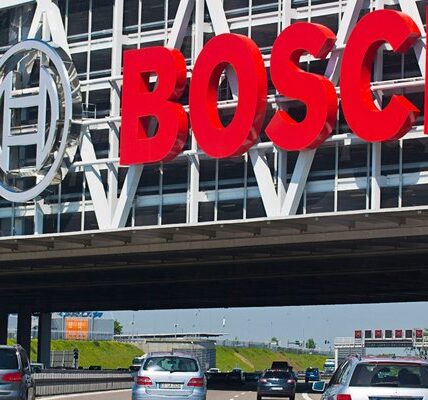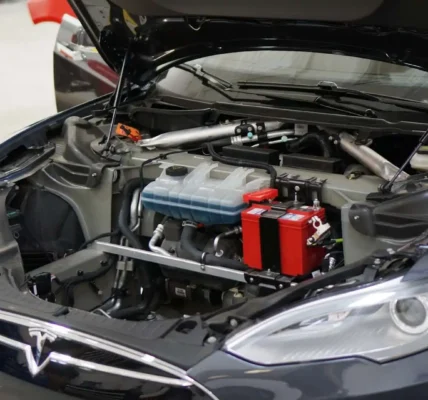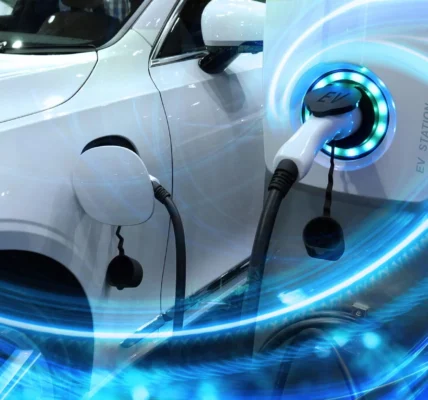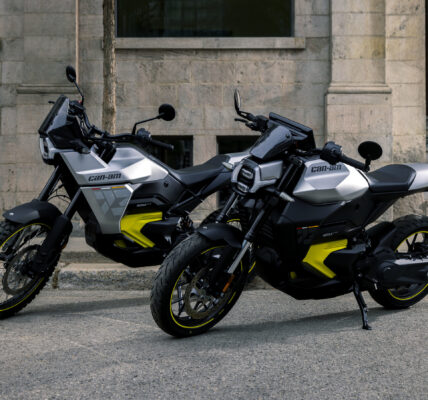Access to reliable fast charging stations is one of the biggest hurdles the U.S. faces while trying to boost adoption of electric vehicles (EVs). Tesla’s nationwide network of Superchargers is hands-down the best in the country—if not the world. But for drivers who aren’t riding in a Tesla, a new partnership between seven major automakers is welcome news.
BMW, GM, Kia, Honda, Hyundai, Mercedez-Benz, and Stellantis are partnering to develop a new public charging network across North America. The unnamed venture promises to bring at least 30,000 new high-speed charging stations to highways and urban areas by 2030.
New Charging Stations are On the Way
Earlier this year, the Biden Administration laid out an action plan designed to help reach its ambitious goal of EVs making up half of all new car sales by 2030. A nationwide network of 500,000 charging stations is another of the administration’s goals. To get there, the U.S. government plans to invest $7.5 billion in EV charging.
The joint venture leans into this initiative. It will leverage funding from the National Electric Vehicle Infrastructure (NEVI) plan as well as other private and public sources.
The 30,000 new charging stations will appear in “urban and highway locations” to increase accessibility. Interestingly, the press release also mentions “various amenities” for drivers to take advantage of while recharging. However, it’s unclear if this refers to amenities provided by the charging station locations themselves or if they will simply be near rest stops and other public facilities. The first stations will be installed in the U.S. as early as next summer with the first Canadian stations coming at “a later stage” per the press release.
Notably, the new charging network will be compatible with vehicles made by all the partner companies. Owners of those cars won’t need to use an additional app to gain access. Drivers of other makes can still use the charging stations if their vehicle features a compatible port, but will need to download the app. Likewise, the charging stations will integrate the “Plug and Charge” standard, which offers more secure and convenient charging at compatible stations. The Federal Highway Administration is currently working to standardize Plug and Charge across America.
Each charging station will also feature both the Telsa North American Charging Standard (NACS) and Combined Charging System (CCS) plugs. These are the two most popular standards by far. It’s worth noting that several non-Tesla automakers, including Ford, GM, Nissan, and Volvo, have committed to installing NACS ports on their future vehicles.
In a joint press release announcing the venture, GM CEO Mary Barra said, “The better experience people have, the faster EV adoption will grow.”
Indeed, improving the convenience and accessibility of EV charging stations is a top priority for the auto industry. Many of today’s smaller charging networks operate exclusively with their own apps, creating a hassle for drivers who simply want to pull in for a charge.
The automakers also announced that the sprawling charging network will be entirely powered by renewable energy. However, at this time, it remains unclear whether the stations themselves will deliver power gathered from renewable sources. The companies behind the venture could also purchase renewable energy credits. These encourage the production of renewable energy and are an increasingly popular alternative for companies seeking to obtain proof of their carbon footprint reduction efforts.
As the EV revolution gains momentum over the next decade, access to reliable, convenient charging stations will be essential. This new venture promises to increase access and give EV drivers even more choices.








